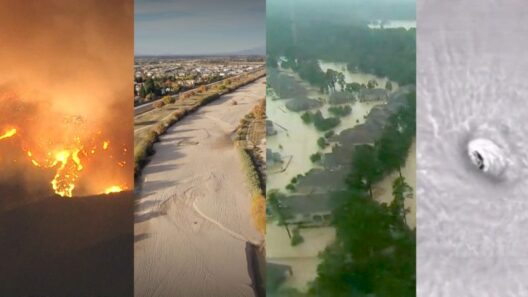The intersection of climate change and economic policy presents a multifaceted dilemma that often eludes simplistic explanations. As the effects of global warming become increasingly evident, the relationship between environmental sustainability and economic vitality is emerging as a crucial area of exploration. A critical examination reveals a complex web of unseen costs and consequences that policymakers must navigate.
At its core, climate change imposes an array of externalities on the economy. Externalities are costs or benefits that affect a party who did not choose to incur those costs or benefits. In the context of global warming, negative externalities are rampant; they manifest in the form of extreme weather events, sea level rise, and biodiversity loss. These phenomena not only threaten ecosystems but also destabilize economies, particularly those heavily reliant on agriculture, tourism, and natural resources. For instance, shifting weather patterns can drastically affect crop yields, leading to increased food insecurity and soaring prices.
In acknowledgment of these risks, economic policy must adapt to recognize and address the challenges presented by climate change. A common observation is that governments often prioritize short-term financial indicators over long-term sustainability. This shortsightedness reflects a broad inconsistency in managing resources and prioritizing economic growth vis-à-vis environmental stewardship. Consequently, the fiscal implications of climate inaction become exorbitant, manifesting in increased disaster relief spending, infrastructural repairs, and public health crises.
However, the link between climate and cash is not merely a tale of downside risk; it also offers opportunities for proactive investment. The transition to a low-carbon economy invites innovations in renewable energy, sustainable agriculture, and green technology. These sectors are poised to generate jobs and stimulate economic growth, fostering resilience to climate impacts. An investment in renewable energy not only mitigates greenhouse gas emissions but also revitalizes local economies, often through job creation in manufacturing, installation, and maintenance roles.
The emergence of carbon pricing mechanisms, such as carbon taxes and cap-and-trade systems, serves as a foundational example of how economic policy can be tailored to address climate concerns. These instruments seek to internalize the external costs of carbon emissions, thereby incentivizing corporations to reduce their carbon footprints. Although such policies may initially seem burdensome to industry, the long-term financial benefits far outweigh the upfront costs. By integrating the price of carbon emissions into business models, companies are driven towards more sustainable practices, ultimately safeguarding both the environment and their fiscal health.
The potential for public-private partnerships should also not be overlooked. Collaborative initiatives harness the innovative capabilities of the private sector while leveraging governmental oversight and funding. Such synergies can facilitate the development of sustainable infrastructure, bolster research and development for greener technologies, and promote educational programs that empower communities to adopt sustainable practices. An investment in human capital is equally vital, as equipping the workforce with skills pertinent to green jobs ensures economic resilience in the face of climate-related disruptions.
Nevertheless, an exploration of climate and cash underscores the philosophical quandaries inherent in our societal values. The prioritization of immediate economic returns often leads to an inherent conflict: do we sacrifice the planet for short-term gains? This dilemma invokes a moral obligation to recognize that the Earth’s resources are finite and that fiscal policies must encapsulate a longer time horizon. A sustainable future necessitates an economy that harmonizes environmental integrity with growth. Policymakers must wrestle with ensuring that financial resources are allocated to initiatives that fortify ecological health while addressing the injustices faced by vulnerable populations disproportionately affected by climate change.
In examining climate impacts on various economic sectors, it becomes apparent that a future-oriented approach is vital. Industries critical to our economy, such as agriculture, forestry, and fisheries, face existential threats from changing climatic conditions. By integrating climate risk into economic models, investors can better anticipate the long-term viability of their portfolios, steering financial resources towards more sustainable endeavors. This shift not only enhances financial performance but also contributes to the collective aim of mitigating climate change.
Moreover, the psychological aspect of climate action and economic policy merits attention. An often-overlooked dimension is the societal perception of economic instability arising from ambitious climate measures. Fear of economic downturn can stifle progressive initiatives, as electoral cycles encourage politicians to favor populist short-termism. Yet, evidence suggests that the cost of inaction on climate change far eclipses the investment in proactive measures. Policymakers must effectively communicate the imperatives of climate action, framing them as not just crucial for environmental sustainability, but as indispensable for economic resilience and public welfare.
In conclusion, unraveling the intricate relationship between climate and cash reveals a compelling narrative of urgency, motivation, and potential. The unseen costs of climate change fundamentally challenge traditional economic paradigms, compelling a reexamination of policies that prioritize short-term growth over long-term sustainability. A comprehensive recontextualization of economic policy, imbued with a climate-conscious ethos, is imperative. By fostering a symbiotic relationship between economic vitality and environmental stewardship, society can bolster its resilience against the undeniable realities of a warming world, ensuring a sustainable legacy for future generations.






